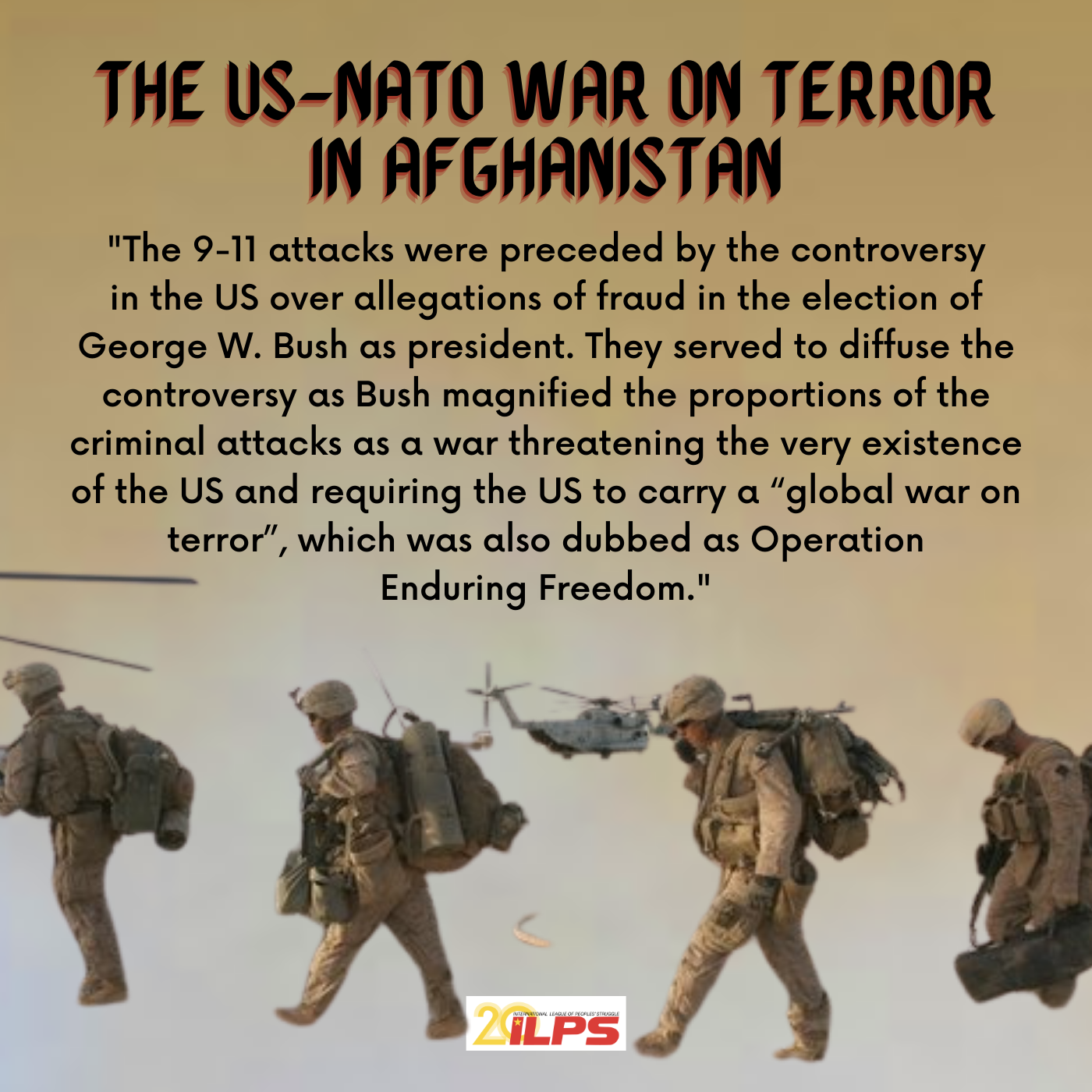The 9-11 attacks were preceded by the controversy in the US over allegations of fraud in the election of George W. Bush as president. They served to diffuse the controversy as Bush magnified the proportions of the criminal attacks as a war threatening the very existence of the US and requiring the US to carry a “global war on terror”, which was also dubbed as Operation Enduring Freedom. They succeeded in obtaining mass media and popular support for Bush as a war president and in capsizing the protest about his allegedly fraudulent election.
He found the outlandish expression “war on terror” convenient and fitting inasmuch as his father had proclaimed a “new world order’ following the collapse of the Soviet Union and the US was enjoying the status of sole superpower and the strategists of the US deep state were boasting of the neoconservative policy as complement to neoliberalism and as the way to ensure that Pax Americana reign in the 21st century with the high-tech military superiority of the US over any possible adversary.
As immediate reaction to the 9-11 attacks, George W. Bush delivered on September 20, 2001 an ultimatum to the Taliban government or the Islamic Emirate of Afghanistan to surrender Osama bin Laden and other Al Qaeda leaders in Afghanistan or face attack. The Taliban riposted that evidence of bin Laden’s complicity in the September 11 attacks be presented and, if such evidence warranted a trial, the trial be done in an Islamic Court in a third country.
In October 2001, U.S. forces (with UK and NATO coalition allies) were ready to invade Afghanistan and to oust the Taliban regime. On October 7, 2001, the US and British forces began the invasion by conducting airstrike campaigns over enemy targets. The Taliban government was forced to withdraw from Kabul, the capital city of Afghanistan, by mid-November. The Taliban and Al Qaeda elements withdrew to the rugged mountains of eastern Afghanistan, mainly Tora Bora.
In March 2002, the U.S. and other NATO and non-NATO forces launched Operation Anaconda and failed to achieve the objective of destroying the Taliban forces and Al Qaeda forces in the Sha-i-Kot Valley and Arman Mountains. The Taliban could maneuver within the areas of the Pashtun tribes in both Afghanistan and Pakistan and carried out guerrilla warfare against the US-led coalition forces and built a government parallel to the Afghan puppet government of the US from late 2002 onwards.
The US-led coalition forces increased their armed strength and launched a series of military offensives but failed to destroy the Taliban. In February 2010, they launched Operation Moshtarak in southern Afghanistan, along with other military offensives, with the objective of destroying the Taliban once and for all time. But they failed and began to make offers of peace talks to the Taliban.
In September 2014, the US and the Afghan puppet government signed a security agreement, which permitted the United States and NATO forces to remain in Afghanistan until at least 2024. Ultimately, on February 29, 2020, the United States under Trump and the Taliban signed a conditional peace agreement in Doha, requiring the US troops to withdraw from Afghanistan within 14 months on the condition that the Taliban cooperated with the terms of the agreement not to “allow any of its members, other individuals or groups, including Al Qaeda, to use the soil of Afghanistan to threaten the security of the United States and its allies”.
The Afghan puppet government was not a party to the deal and rejected its terms regarding release of prisoners. When Joseph Biden became US president, he moved back the target withdrawal date to August 31, 2021. The Taliban timed their general offensive in 2021with the schedule of withdrawal of the coalition forces. It was able to defeat the Afghan Armed Forces and take over Kabul on August 15, 2021. On this same day, the president of the puppet government Ashraf Ghani fled from Afghanistan and the Taliban declared victory and the end of the war. On August 19, 2021, the Taliban once more proclaimed the Islamic Emirate of Afghanistan.

